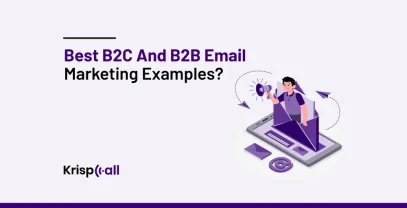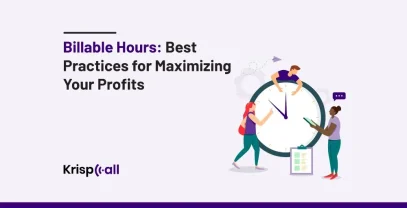Have you ever wondered how businesses keep track🔎of their customers and provide personalized experiences? Well, that’s what CRM is used for!!
CRM is a set of strategies and tools for handling your business’s overall customer relationship. It is primarily used to maintain customer satisfaction✅. It provides a centralized platform for all the data and tools used to handle customer interactions.
If you want to learn about CRM and its avoidable mistakes in detail. We’ll get you covered. In this article, you will learn about CRM, the common CRM mistakes businesses make, and how to avoid them successfully.
🔑 Key Highlights
- Top CRM mistakes are not tracking customer interactions, recording inconsistent data, not using CRM for marketing purposes, and not properly training employees.
- CRM is a set of tools and strategies to handle the business’s customer relationship.
- CRM system is used to maintain customer relationships and customer satisfaction.
- CRM systems are used mainly by customer support and service departments, sales and marketing teams, e-commerce platforms, and call centers.
What is CRM?
CRM (Customer Relationship Management) is a system businesses use to manage or analyze customer interactions. It is a set of tools or strategies that handles the overall customer interaction. The primary goal of the CRM is to maintain customer satisfaction.
The main goal of CRM is to make people satisfied with the product. So, CRM is used by companies that need to interact with people a lot. Customer support teams, sales and marketing groups, online stores, and call centers mostly use CRM.
CRM gives one place to store and manage info about the customer and potential customers. It makes it easy to help people with questions, improve how people interact with the company, and make people happier. CRM tracks the whole buying journey for each person.
CRM is a reliable system for managing the relationship with the customers. But it must be used right to work well. Mistakes in setting up CRM or entering data can make the result inconsistent. Moreover, It can hamper the overall customer service.
Top 5 CRM Mistakes Businesses Make and How to Avoid Them
Businesses that put in customer relationship management (CRM) software may see a big change in their client ties from before. While using CRM is essential, keeping away from mistakes that can make costly client experiences is also as important. CRM Mistakes or odd errors in the CRM framework can directly hit the client’s experience.
Now, let us look at the top 5 CRM mistakes businesses make and get insights into how to avoid them.
1. Not Tracking Customer Interactions
Using tools to see how people interact and buy things helps businesses. It lets them know what customers like and want. Then, firms can interact with their customers in ways they like best. One of the major CRM mistakes that lots of businesses make is not using tools to track how customers interact.
Seeing how customers interact and buy things helps businesses a lot. You can learn what people do and want according to their behavior, preferences, or needs. Then, firms interact in ways customers enjoy most. Integrating your CRM system with a cloud telephony system can increase the efficiency of your communication functionalities.
From a sales perspective, it will be difficult to identify problems that customers are facing regarding the products. You may not be able to recommend relevant products or improve the services according to customers’ preferences. Without the proper data about customer interaction, you might miss out on addressing the customer issues that might lead to customer dissatisfaction.
How to Avoid Them
To avoid this CRM mistake, you must set up a proper tracking mechanism throughout the customer lifecycle by utilizing the built-in CRM features that help to track customer interactions. Establishing specific rules and guidelines to maintain the tracking mechanism and clearly defining the set of information that must be recorded can eliminate these mistakes.
2. Recording Inaccurate and Inconsistent Data
A CRM system must have accurate and consistent customer data to function effectively and provide favorable results. CRM will not provide correct outcomes if the data is incorrectly entered or updated regularly. This might be a big mistake because it affects how you interact with customers and deliver a good customer experience.
Accurate or insufficient data makes it difficult to identify customer needs and interests, leading to poor marketing campaigns. It also degrades sales forecasts by a considerable margin. This is definitely a mistake you want to avoid.
When your data contains duplicate records, incorrect contact information, outdated details, empty fields, misspelled words, and other errors, it’s considered “bad data.” Inaccurate data can be even worse than having no data at all, as the consequences can be harmful.
How to Avoid Them
Manual human errors mainly cause this mistake and can be avoided easily. Implementing validation rules and guidelines to ensure the data is accurate and in standard format can remove this mistake. Reviewing the data in the CRM system can help you find and eliminate inaccuracies.
3. Not Using CRM for Marketing Purposes
When considering using a CRM system, it is essential to evaluate the strategy of your marketing teams. A CRM system is a valid marketing tool. CRM systems can track and provide relevant data about customer interests and preferences. You can use that to create targeted marketing campaigns.
Businesses often think CRM systems are only for sales and customer support. But they can also help with marketing if used right. Missing this fact means you’re missing many marketing chances.
CRM lets you track how you interact with customers, learn what interests them, send marketing emails, make follow-up calls and do other marketing tasks. Using CRM for these things helps you engage with customers better.
How to Avoid Them
You can use your CRM for marketing purposes. It can integrate with different business tools to create targeted marketing campaigns. The customer data provided by the CRM can be utilized to send personalized marketing emails that focus on customer’s interests and preferences.
4. Failing to Regularly Update Customer Information
Lots of firms make simple mistakes with their CRM tools. One very common error is not keeping client info current all the time. This small blunder can really mess up how well the CRM performs. Updating customer details on a regular basis is key for good CRM results. The best way is to double check all info often.
This ensures accuracy and prevents bad data from piling up. Staying on top of it takes work but pays off greatly. Accurate data means better campaigns, sales, and overall service.
Not updating customer facts regularly, like their contact info, likes, or what they bought before, means you might have old and not useful data. You could call the wrong number or send emails to the wrong address if the data stored is incorrect.
How to Avoid Them
You can help stop bad data from being put in your CRM by setting rules for how data is entered. Looking over the info in your CRM, updating customer details, and making clear rules for managing data can also stop this mistake. Having accurate data is very crucial for your business.
5. Not Providing Proper Training to Employee
Your team may not use the CRM system well if you don’t train them properly. You must figure out how to help them in terms of maximizing the use of the CRM system and gaining efficient outcomes from them. Since they will use this CRM system the most, it is crucial that you get them on board.
Without the right training, employees may find it hard to work with the CRM system smoothly and happily. If trained well, they may help recoup the investment costs. If not trained, it could end up wasting time and money. You should provide proper training and guides to the employees about complex CRM tools and functionalities.
How to Avoid Them
Workers who use a CRM must know how to use it well. They can do better work if they know all the steps. Having classes, guides, and help makes workers more sure about using the CRM right. Managers should teach workers to use CRM tools well. Give papers that explain things simply. Offer help if workers are stuck. Let them ask questions too. When workers know CRM inside out, they will use it the best way and make less mistakes.
Conclusion
The use of CRM systems has become common in the business world. And the mistakes that come with it have also been increasing with it. It is essential to figure out the common CRM mistakes and eliminate them. To maximize the efficiency of the CRM system we must avoid making mistakes. These mistakes can make it harder for you to achieve the desired outcomes from your CRM system.
Furthermore, Businesses should prioritize avoiding these mistakes at all costs. They greatly impact customer interaction and satisfaction. Tracking customer interactions in detail, recording the data accurately, updating the data regularly, and properly training the end user about the CRM system can maximize the system’s efficiency.





